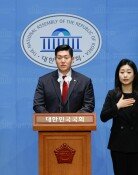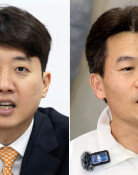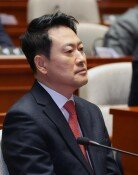Euro Worth $1.20, A New High
Euro Worth $1.20, A New High
Posted December. 04, 2003 22:51,
At 11:10 a.m. on November 4, the euro was worth $1.2112 on the Tokyo Foreign Exchange, continuing the trend of a weak dollar on the New York Foreign Exchange.
In New York, the dollar showed its lowest level against the Japanese yen in two months and the Australian dollar in six years. Australian central bank raised the short-term interest rate by 0.25 percent. As time goes by, the dollar gets weaker.
When the economy shows strong growth, currency usually appreciates due to capital inflow, but the dollar is depreciating sharply as the political bad news as well as unfavorable economic conditions pile up.
The U.S. government claims that it maintains a strong dollar policy. But investors dont believe this, and with a low interest rate of one percent on top of the gigantic twin deficits of government and current account deficits, an investment decision in the dollar is difficult.
Robert Shinche, the chief currency strategist of Citibank, said, The dollar wont regain its value until the Federal Reserve Board (FRB) hints at an increase in the interest rate or until the first half of next year when the effects of economic growth become fully realized.
The AP reported that ABN Amro, which predicted in early October the sharp fall of dollar and rising of the euro to $1.13 in the fourth quarter (October-December), forecasts the euro to appreciate to $1.26 in the next three months.
Meanwhile, the American economy is regaining its health, recording labor productivity growth of 9.4 percent in the third quarter (July-September), the highest level in twenty years, according to the Department of Labor. This is much higher than the seven percent growth in the second quarter or the estimate of 8.1 percent previously reported.
Lynn Reaser, the chief economist of Bank of America, interpreted this as good news that shows the possibility of continued growth, saying, Thanks to the rapid productivity growth, companies are now able to expand investment or increase employment without having to cut costs.
Kwan-Hee Hong konihong@donga.com







